Khakee: The Bengal Chapter Is A Toothless Political Thriller
Neeraj Pandey's show undercuts nuances and unfolds as an inflated cat-and-mouse thriller that could have been set anywhere and at any time. The lay of the land has little bearing on the proceedings.

Promo poster for Khakee: The Bengal Chapter.
Last Updated: 03.51 PM, Mar 20, 2025
LAST WEEK, a tightly wound, one-shot wonder called Adolescence dropped on Netflix. It took a couple of days and the verdict was out: this is the streamer’s breakout show of the year. Like Baby Reindeer was in the previous year and the first season of Squid Games, the Korean survival thriller, was in 2021. The list keeps expanding as one looks back but the dearth of Indian titles is conspicuous. Vikramaditya Motwane’s Sacred Games (2018) was a formidable start but the mentions have only been leaner with time.
There is a distinct kind of non-commital work that is more content in occupying space than inhabiting time. They speak a lot but say too little. Except for Motwane’s Black Warrant (co-directed by Satyanshu Singh), most Netflix originals from India this year have been an assembly line of similar-looking production. Neeraj Pandey’s sprawling Khakee: The Bengal Chapter, the second part of his Khakee franchise, is the newest addition.
A host of ready factors should have precluded this. The title carries the name of a place, and when set to a timeframe, the conjunction opens up cultural pointers beyond the usual hattips. But Khakee: The Bengal Chapter undercuts nuances and unfolds as an inflated cat-and-mouse thriller that could have been set anywhere and at any time. The lay of the land has little bearing on the proceedings and the audacity in casting — the series brings together the Bengali superstars Prosenjit Chatterjee and Jeet for the first time on screen — differs from the conventional treatment.
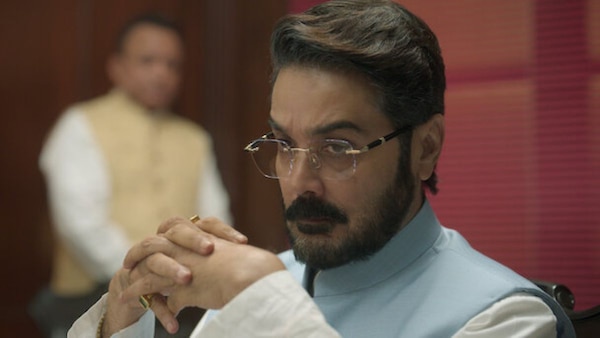
Khakee straddles two timelines: 1991 and 2002. Across the decade, the ruling party has been the same. Barun Roy (Chatterjee), a member of the party, is the man who controls everything, even the Chief Minister (essayed by the veteran Bengali actor Subhashish Mukherjee). He also commands a group of outlaws headed by Bagha (Saswata Chatterjee) and his two faithful goons — Sagor (Ritwik Bhowmik) and Ranjit (Aadil Zafar Khan). With upcoming elections, things get volatile, a cop gets killed (Parambrata Chatterjee makes a brief appearance), and his replacement arrives, as the opposition leader Nibedita Basak (Chitrangada Singh) calls for action.
Written by Debatma Mandal, Samrat Chakraborty and Pandey (Mandal and cinematographer Tushar Kanti Ray share director duties), the seven-episode series takes a while to underline the characters, their standing, and retains intrigue till then. The details unravel swiftly. Bagha and Barun go a long way, and for reasons unknown, the former listens to the politician. His two henchmen- Sagor and Ranjit are tied to the hip. But they are also different in their personalities. Sagor, a married man, is more cerebral compared to the livewire that is Ranjit. The new IPS officer in town Arjun Maitra (Jeet) does not hesitate to disobey if he can do his job.
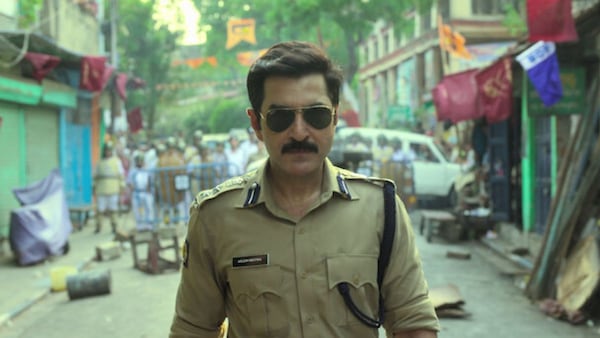
None of this is extraordinary and all of it points to a direction that the series duly takes. Gang wars, ego trips and power shuffles are on the horizon and Khakee faithfully touches upon them. This in itself is not a problem except Pandey, the showrunner, melds conventional narrative with formulaic detailing and generic technicalities. In his hands, the series bleeds into Kolkata instead of the city folding into the story. A lot of the scenes are shot outdoors which in itself is a marvel (given how densely populated the city is) but this becomes more of a flex and less of a creative call.
The obvious checkpoints are marked. Protests happen at Shahid Minar, a historical landmark dedicated to the rebellious spirits of the past; a police officer is killed at an empty Esplanade and later his corpse is placed in front of Victoria Memorial; in another scene, a song from a film by Tapas Pal, one of the most Bengali popular actors through the 80s, plays on TV, and in another instance, two officers sing 'Chirodini Tumi Je Aamar', a rage from the 1987 film Amar Sangi (Prosenjit Chatterjee’s breakout work).
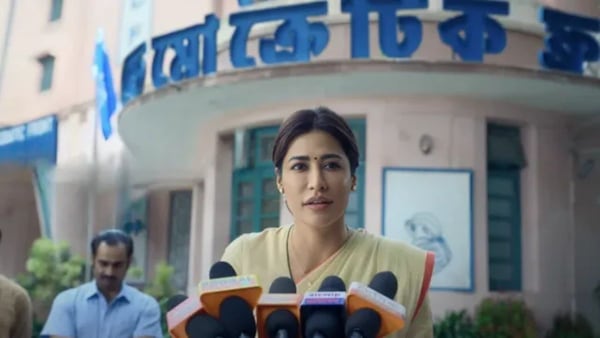
But these extraneous details plant Khakee to Bengal without rooting it. The complex political contours of the state are rendered in oversimplified terms where the protesting party is depicted as social workers. Nibedita Basak only holds rallies and shouts, “Cholbe na, Cholche na” (Won’t do, won’t happen). Neither her party nor she accrues the dread that Barun Roy and his compatriots (all men) appear to crumble under. If the latter’s party is modelled on the Communist Party of India (that ruled Bengal for over three decades) and Khakee hints at their defeat in 2011 then the power struggle demanded a more pointed thriller.
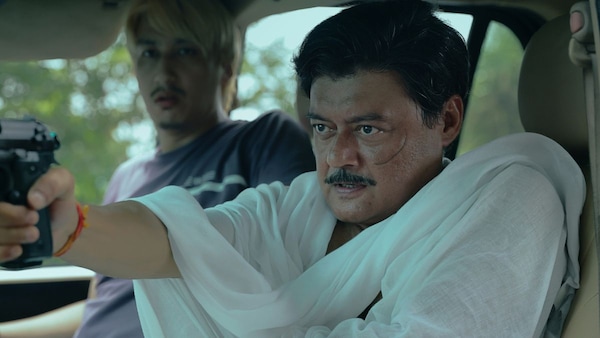
Khakee is too toothless to be that. The risk-aversive nature of the series extends to the performances. Most of them (comprising Bengali actors) are serviceable, but none stands out. Jeet and Prosenjit Chatterjee essay roles that demand little from them beyond their presence. Ditto for Saswata Chatterjee, even still the best actor in the show. Bhowmik, a fine actor otherwise, is too stilted in some scenes but Khan, saddled with a combustible role, is the one who explodes. He dials up the Sanjay Dutt mannerism and they work more than they don’t. But what remains common across the board is how the performances improve significantly when they break out in Bangla (the language is thoughtfully retained for most of the cuss words).
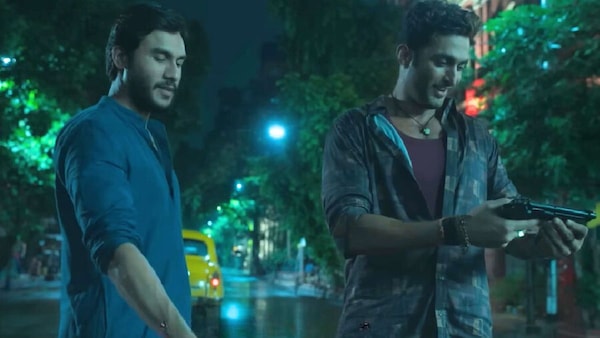
This also brings to mind another question: if the place has such little hold on the series, why even call it the Bengal chapter? If the series remains hesitant to be specific about the state’s politics, then why have actors playing Bengali politicians and speaking intermittently in the local language? Is it to pander to a larger audience? Or is it to stick to an already set algorithm-designed storyboard? The answer is unclear except one thing is uncertain: a politically animated state like West Bengal deserved a better political thriller.
Khakee: The Bengal Chapter is currently streaming on Netflix.
